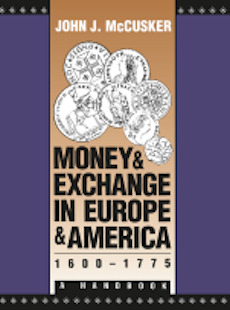
Freedom's Debt
The Royal African Company and the Politics of the Atlantic Slave Trade, 1672-1752
William A. Pettigrew
 Publisher: Omohundro Institute
Publisher: Omohundro Institute
Imprint: OIEAHC
Published: 08/2013
Reprint: 2016
Pages: 272
Subject: History, Social Science, British History,African American Studies
Paperback ISBN: 9781469629858
eBook ISBN: 9781469611822
DESCRIPTION
In the years following the Glorious Revolution, independent slave traders challenged the charter of the Royal African Company by asserting their natural rights as Britons to trade freely in enslaved Africans. In this comprehensive history of the rise and fall of the RAC, William A. Pettigrew grounds the transatlantic slave trade in politics, not economic forces, analyzing the ideological arguments of the RAC and its opponents in Parliament and in public debate. Ultimately, Pettigrew powerfully reasons that freedom became the rallying cry for those who wished to participate in the slave trade and therefore bolstered the expansion of the largest intercontinental forced migration in history.
Unlike previous histories of the RAC, Pettigrew's study pursues the Company's story beyond the trade's complete deregulation in 1712 to its demise in 1752. Opening the trade led to its escalation, which provided a reliable supply of enslaved Africans to the mainland American colonies, thus playing a critical part in entrenching African slavery as the colonies' preferred solution to the American problem of labor supply.
ABOUT THE AUTHOR
William A. Pettigrew is lecturer in history at the University of Kent.
AWARDS
Jamestown Prize (2009)
REVIEWS
"For the first time, the origins of the British slave trade receive the searching inquiry they long have deserved. With Freedom’s Debt, Pettigrew tells a new story about the political foundations of the traffic as well as the ideological seeds of its dissolution."
--Christopher Leslie Brown, Columbia University
"With startling precision, Pettigrew reveals the role of liberal political and market institutions in bringing about the massive eighteenth-century acceleration of the British Atlantic slave trade. All of us must ponder this deeply researched account of how ‘a distinctively British conception of freedom’ drove the expansion of slavery."
--Christopher Tomlins, University of California, Irvine
"Pettigrew powerfully demonstrates the importance of both political contestation and capitalist disagreements in the emergence of the transatlantic slave trade. In so doing, he skillfully shifts our focus from the heroic story of abolition to an earlier, more political account of the origins of the slave trade itself and the subsequent move to abolish it."
--Steve Pincus, Yale University
"Well researched and coherently organized...convincing, compelling, and important...Freedom's Debt does for English history something like what Edmund S. Morgan did for American history in American Slavery, American Freedom: The Ordeal of Colonial Virginia."
--William and Mary Quarterly
"Accessible and very interesting. . . . An admirable account of how the [Royal African Company] and its rival British slave-trading enterprises shaped, and were shaped by, the politics of the wider society they inhabited."
--Enterprise & Society
"Cogently argued."
--Journal of Southern History
"[A] carefully researched book."
--Journal of American History
"A deeply researched, persuasive study on the political disputes between the RAC and what the author calls the independent slave traders who opposed the RAC's monopoly and were victorious by 1712 in deregulating Britain's slave trade."
--H-Net
"[Freedom's Debt] will be a standard source for specialists for many years to come."
--Journal of Interdisciplinary History
"Pettigrew's work is a much needed examination of the political and economic underpinnings of the early years of the British slave trade."
--History Today
"Pettigrew's fascinating and well-researched book is an essential contribution to the history of the Anglo-American slave trade."
--Journal of Early American History
RELATED TITLES







